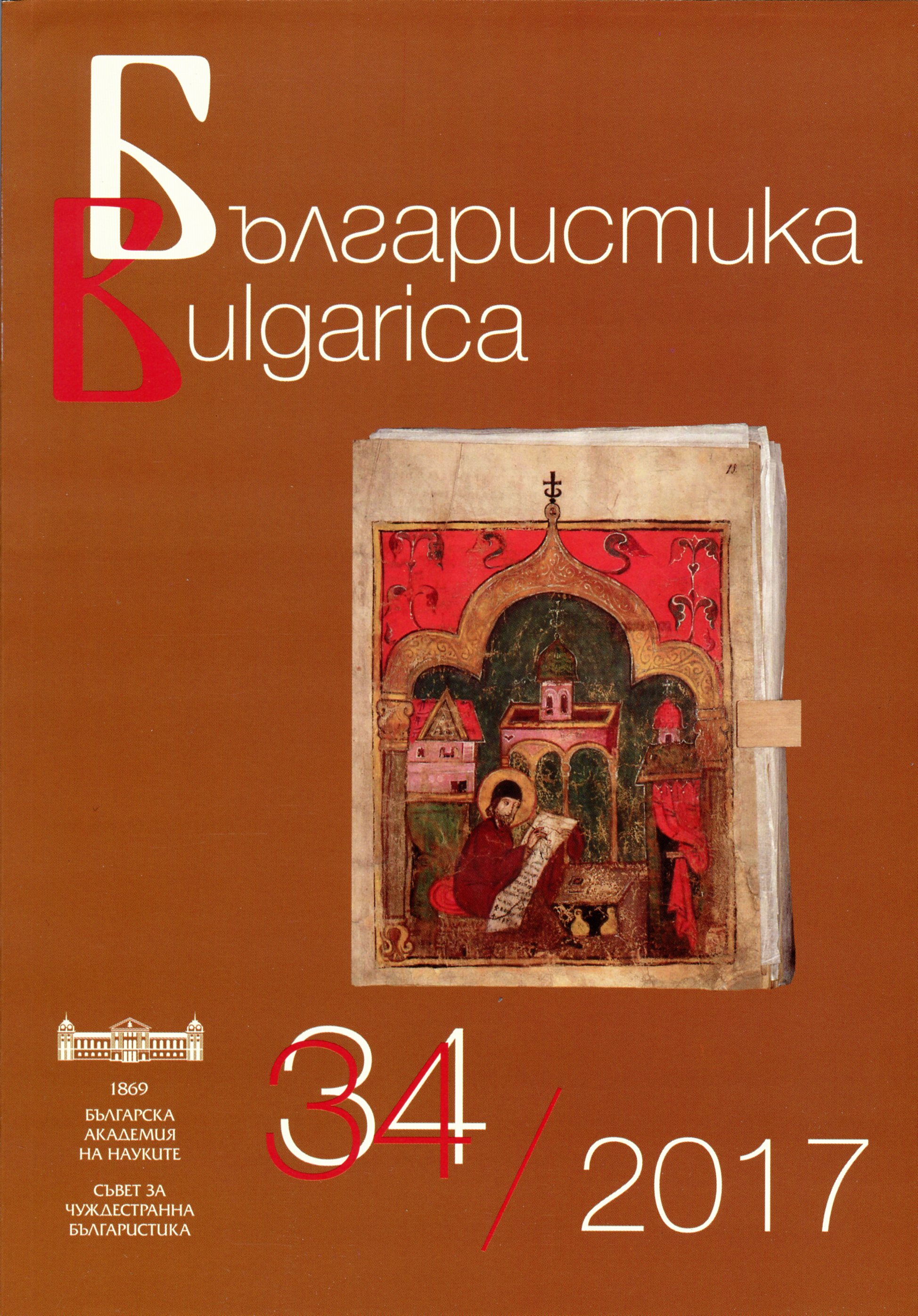
Периодика 2016–2017
Content of the main Bulgarian scientific journals for the current year in linguistics, literature, history, folklore, ethnography, archaeology and art studies
More...We kindly inform you that, as long as the subject affiliation of our 300.000+ articles is in progress, you might get unsufficient or no results on your third level or second level search. In this case, please broaden your search criteria.

Content of the main Bulgarian scientific journals for the current year in linguistics, literature, history, folklore, ethnography, archaeology and art studies
More...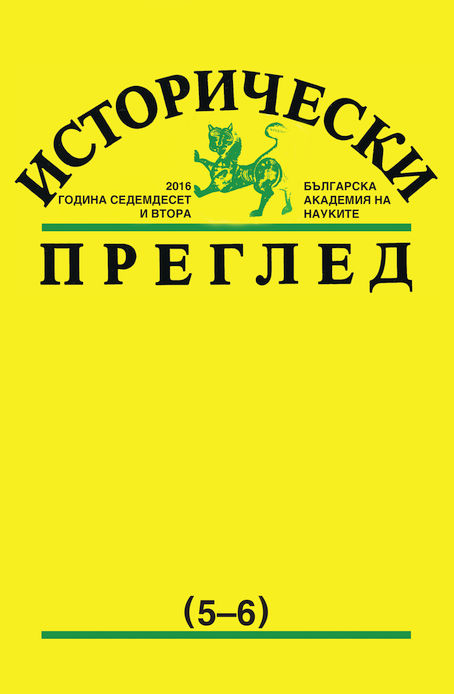
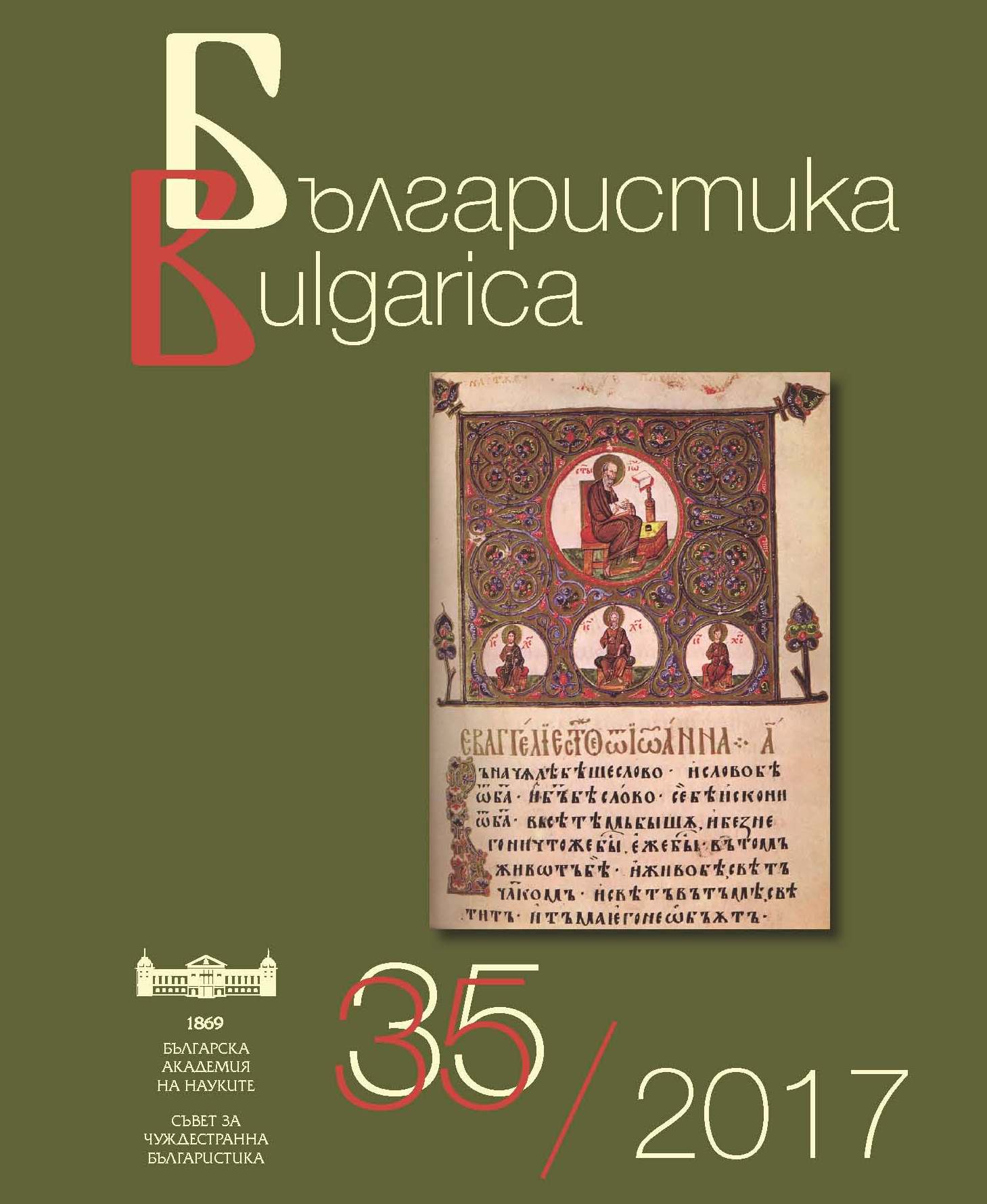
Defended PhD theses in Bulgaria in the field of linguistics, literature, history, folklore, ethnography and art studies.
More...
Data about scientific events in the field of the humanities in Bulgaria in 2017
More...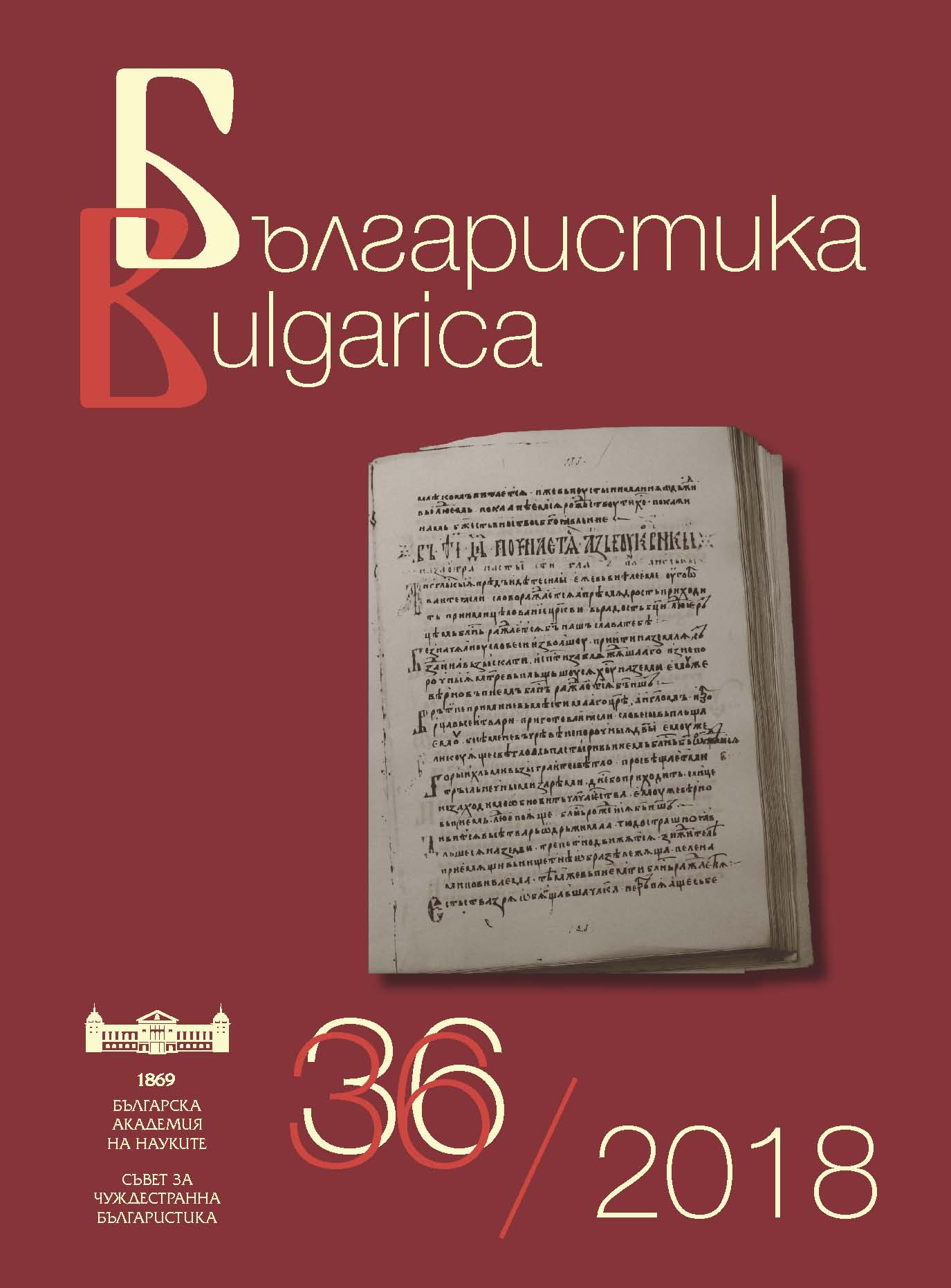
Selected bibliography in the field of Bulgarian Studies published in the current year.
More...
The content of the main Bulgarian scientific journals for the current year in linguistics, literature, history, folklore, ethnography, archaeology and art studies.
More...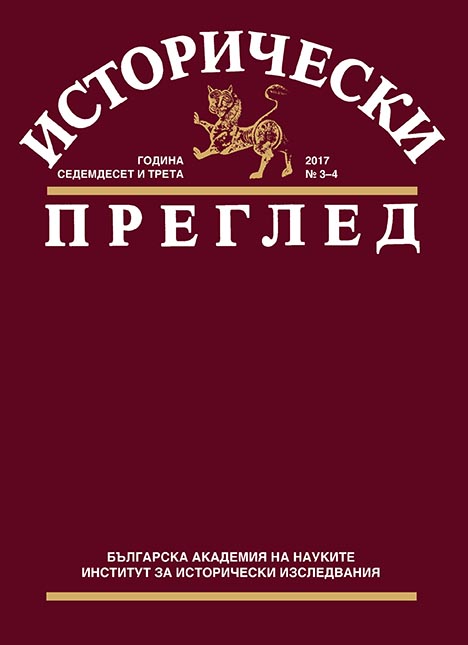
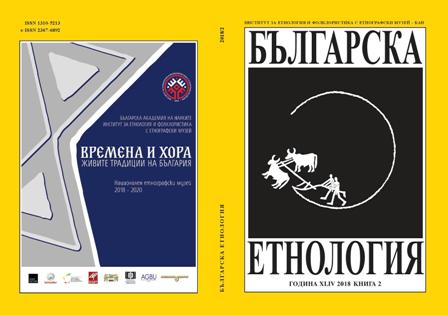

Na odabir termina paratekst, kojim je moguće definirati specijalne žanrove u srednjovjekovnoj književnosti, filolozi su potaknuti definicijama i interpretacijama iz teorije književne kritike do kojih je došao Gérard Genette. Paratekstualnost je odnos između teksta i njegovog parateksta, koji okružuje glavni tekst, kao što su naslovi poglavlja, predgovor, uvod, pogovor, sažetak, napomene, ilustracije, sve što je pored teksta, s osnovnom svrhom da poboljša i prilagodi njegovu recepciju. U srednjovjekovnoj su rukopisnoj tradiciji naslovi poglavlja ili glave (capita), koje nose glavno (kapitalno) značenje sadržaja pripovijesti, potom popratni tekstovi u rukopisnoj tradiciji četveroevanđelja poznatoj kao sinopsis i hipotezis tipično paratekstualne prirode, a takvim se može smatrati i aparat koji je specijalno osmišljen za sinoptičko čitanje teksta četiriju evanđelja, naime Euzebijevi kanoni na hotizontalnim marginama. U Mletačkom i Hvalovom zborniku ta se pravila nalaze na istaknutom mjestu, na početku knjige a popraćena su tradicionalnim tekstom, Euzebijevom poslanicom Ciprijanu, u kojoj je objašnjena njihova svrhovitost. Riječ je o podjeli teksta četveroevanđelja na takav način koji omogućava usporedbu odlomaka u kojima su “evanđelisti jedno rekli.” Osim svih tih formalno uočljivih uputa redaktora oko, ispred, iza i iznad samoga glavnog teksta, kao paratekst se tumače načelno i svi parabiblijski tesktovi, koji se u odnosu na kanonski tekst mogu smatrati periferijskim tekstovima. Tekstovi ove vrste širili su se uglavnom sekularnim putevima i sačuvani su u zbornicima apokrifne literature. Nešto su rjeđi slučajevi kada oni ulaze u sastav kodeksa s primarno kanonskim sadržajem. Većina ih je prevedena u Preslavu u razdoblju od kraja 9. i početka 10. stoljeća. Obilježeni su intertekstualnošću, koja uključuje citiranje, reminiscencije i aluzije na kanonski tekst. Priređivači tih tekstova uživali su veću slobodu pri prepisivanju nego što je to slučaj s prepisivanjem kanonskih tekstova. Dijalektalne odlike lakše su prolazile u te tekstove, pa oni imaju poseban značaj i sa stanovišta historije jezika.
More...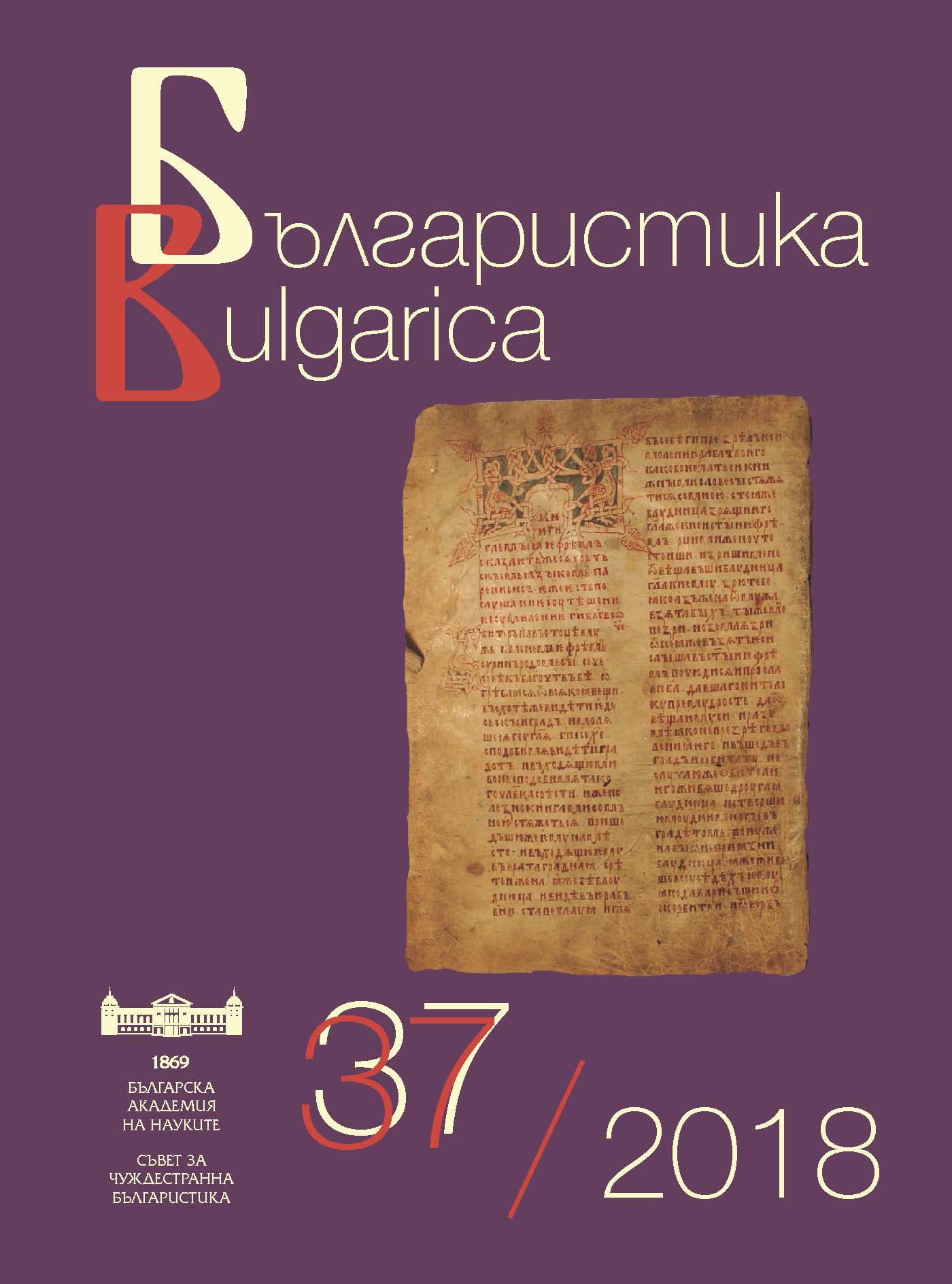



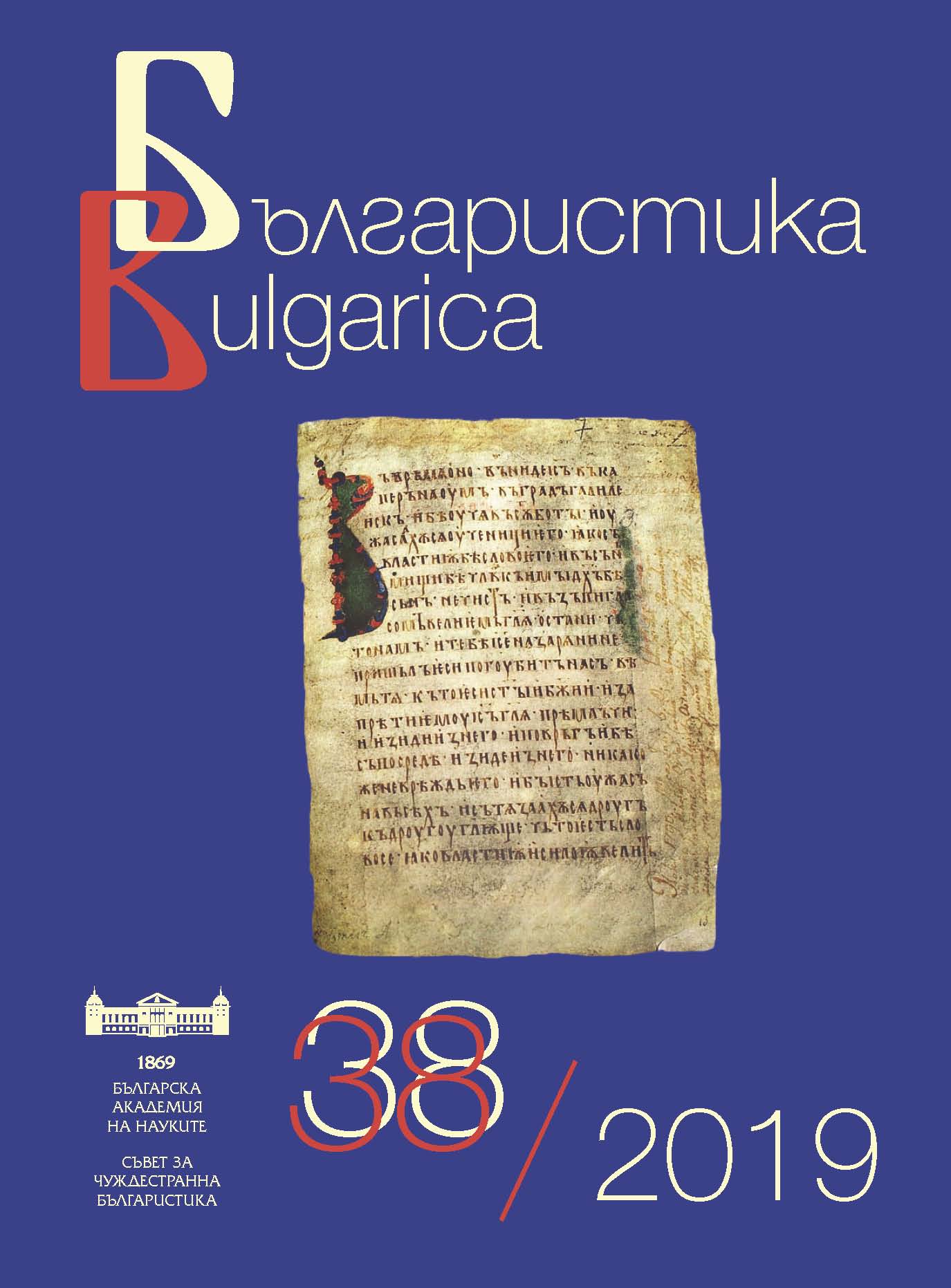
Data about scientific events in the field of the humanities in Bulgaria in 2019
More...
One of the reasons why Amitav Ghosh is considered an important writer is that his narratives do not occupy a “neutral” zone. Rather, they offer a sensitive and multifaceted view on the contemporary problems of the worlds he writes about. Ghosh seems to be intent on moving his readers through his narratives beyond the aesthetic of indifference. Ghosh’s first commitment is to his art.
More...
From its very inception, Indian cinema has been a cinema interested in the idea of nation. Although Raja Harishcandra (credited as the first Indian feature film) was strictly speaking a mythological, Dadasaheb Phalke’s motivation was grounded in a strong sense of nationalism.
More...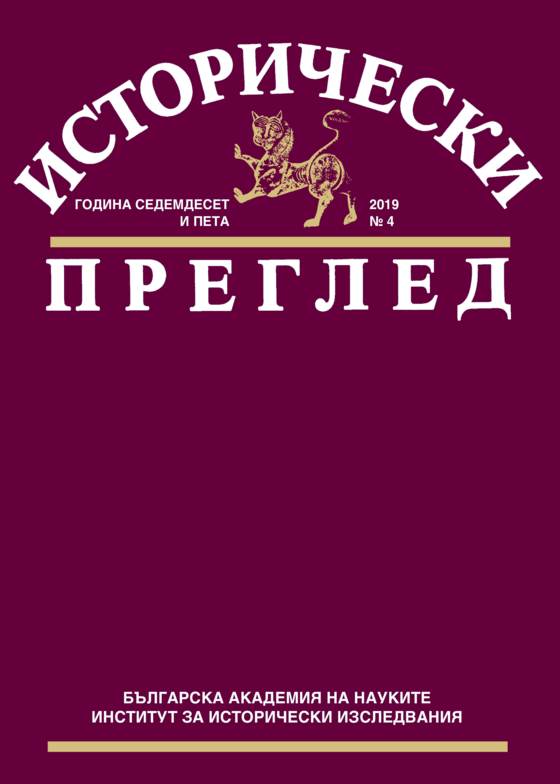
Vasil Aprilov (1789–1847) is an illustrious intellectual of the Bulgarian National Revival and contributor to the foundation of modern Bulgarian education. His works and heritage have been published and analyzed in various publications; however, the data concerning his family and genealogy are so far contradictory and inaccurate, being of subordinate importance for the major works, dedicated to Aprilov. The author resumes the publications, concerning Aprilov’s life and family, juxtaposes the genealogical data and analyzes its credibility in search of the correct family links. Besides the publications on Aprilov, the author reveals unpublished family tree of the Aprilovs, composed by Gabrovo’s local historian Iliya Gabrovski in the 1970s, stored in the State Archive – Gabrovo. Based on the analysis, the article offers a possible reconstruction of the Aprilovs’ genealogical tree.
More...
The text represents the first period (late 1960s to late 1980s) of the professional development of the historian Vladimir Migev, time when he specialized as a researcher of authoritarianism and authoritarian regime in Bulgaria. The article focuses on the conditions of scholarly work specific to those years (compulsory explanatory models and strict ideological control over interpretations) which left their mark on the concepts used by the historian and on his basic evaluations. At the same time, his contributions to the development of a number of major aspects of Bulgarian authoritarianism are shown.
More...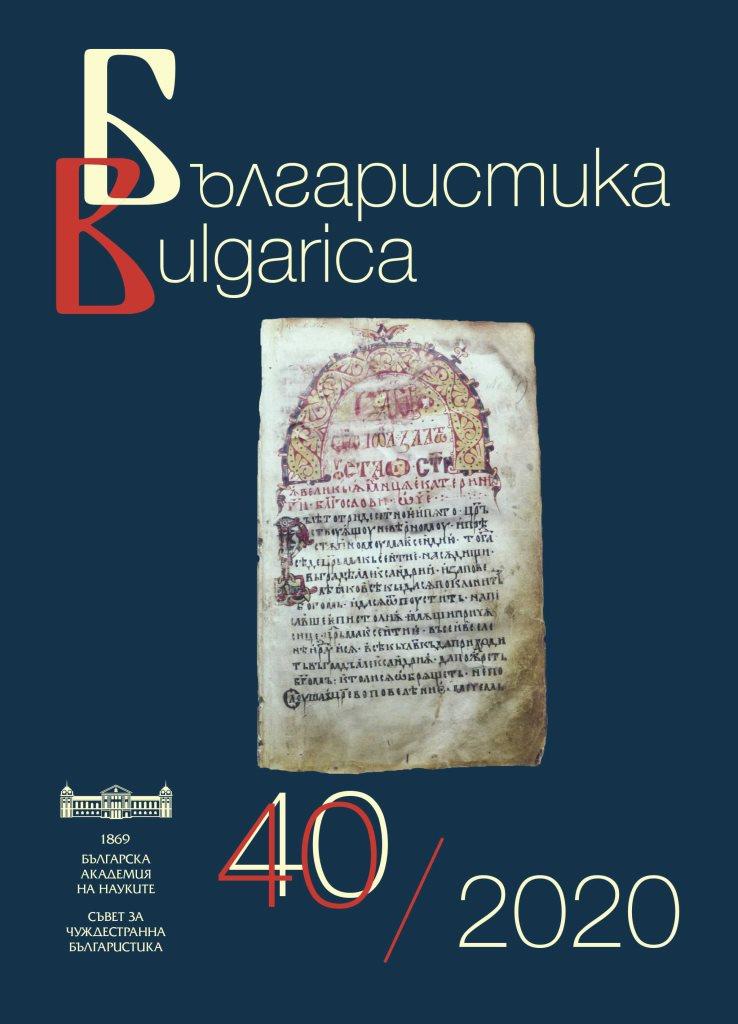
Data about scientific events in the field of the humanities in Bulgaria in the current year
More...